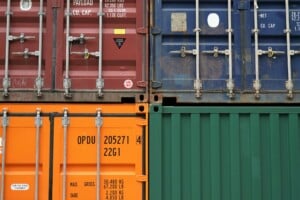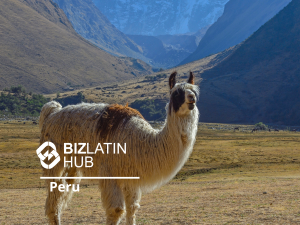Investment opportunities abound in regions characterized by economic collaboration. Mercosur, the Southern Common Market, enables member countries to engage economically through integration and free trade. This alliance boosts trade efficiency and positions itself as an attractive option for global investors.
Key member nations, including Argentina, Brazil, Paraguay, and Uruguay, play significant roles within this framework. Each country offers distinct advantages, supporting various industries and creating a favorable environment for investment through incentives and local market access.
This article outlines the numerous benefits of investing in Mercosur member countries. It covers topics such as lower tariffs, enhanced infrastructure, and access to emerging markets. Understanding these elements can guide investors in making informed decisions when entering this growing economic landscape.
Economic Integration of Mercosur
Mercosur formed in 1991 by Argentina, Brazil, Paraguay, and Uruguay promotes free trade in South America. The bloc has reduced tariffs contributing to a tenfold increase in trade during its first decade. Brazil and Argentina make up 95% of Mercosur’s GDP and 92% of its population. This creates economic imbalances within the group.
Challenges like political disagreements and protectionist policies hinder its free trade goals. These issues have led to a decline in intra-bloc trade. Mercosur aims to emulate the European Union as a common market. However, complex trade rules limit economic integration efforts.

Key Points of Mercosur’s Economic Integration:
- Main Members: Argentina, Brazil, Paraguay, Uruguay
- Achievements: Tenfold trade growth in the first decade
- Economic Imbalance: Brazil and Argentina dominate
- Challenges: Political disagreements, protectionism
- Goal: Common market similar to the EU
Economic integration remains a central focus. Addressing trade barriers and fostering cooperation is essential for future growth.
Key Member Countries Overview
Mercosur stands as a leading economic bloc in Latin America. It comprises Argentina, Brazil, Paraguay, Uruguay, and Bolivia. Bolivia became a full member in July 2024. The collective population of these countries exceeds 285 million people. Their combined GDP is nearly $3 trillion. Mercosur operates as both a customs union and a free-trade area. The bloc seeks to develop into a common market like the European Union. Citizens of member countries have rights to free movement, residence, and employment across the region. Travel documents receive mutual recognition. Main objectives include boosting international trade, promoting economic development, and upholding human rights and democracy.
| Country | Population (millions) | GDP (trillions USD) |
|---|---|---|
| Argentina | ~45 | ~0.50 |
| Brazil | ~214 | ~1.49 |
| Paraguay | ~7 | ~0.04 |
| Uruguay | ~3.5 | ~0.06 |
| Bolivia | ~11.8 | ~0.04 |
Argentina
Argentina’s economy depends on trading with Brazil at zero tariffs. This trading setup supports its industries against non-member countries. Uncertainty with the Milei administration impacts Argentina’s export potential. This uncertainty also delays the EU-Mercosur trade deal. Argentina opposes trade agreements allowing cheap Chinese imports. After the 2001 financial crisis, trade disputes with Brazil rose. The COVID-19 pandemic brought back protectionist measures.
Brazil
Brazil conducts trades with Argentina, Uruguay, and Paraguay using local currencies. This reduces reliance on the U.S. dollar. The country is rich in minerals such as iron ore and bauxite. These resources are essential for Europe’s green technology needs. Brazil benefits from zero tariffs on intra-bloc trade through Mercosur. The Local Currency Payment System (SML) stabilizes Brazilian export values. The COSIPLAN initiative supports over 500 projects to improve transportation and communication.
Paraguay
Paraguay’s ties with Taiwan complicate trade agreements with China. The agricultural economy seeks new markets for growth. Paraguay’s Free Trade Agreements (FTAs) are a result of Mercosur membership. The first bilateral FTA with Chile is under negotiation. Future opportunities depend on Mercosur’s potential expansion, with Bolivia as a new member.
Uruguay
Uruguay has had a trade agreement with Mexico for two decades. A similar arrangement now exists with Chile. Uruguay aims for a free trade deal with China, causing disputes in Mercosur. The decision to prioritize China might influence the bloc’s future. Uruguay is a prime destination for Mercosur exports to China. The government sees better prospects with China than with the EU trade deal.
Benefits of Lower Tariffs
Lower tariffs between the EU and Mercosur boost trade. Exporters enjoy stable market conditions. Reduced tariffs increase trade in motor vehicles, machinery, and pharmaceuticals. These sectors gain better access.
A financial impact accompanies this shift. The EU expects to save about €4 billion with this trade agreement. This saving marks it as a highly profitable deal.
Agricultural exports also see benefits. Lower tariffs improve the competitiveness of EU dairy and wines in Mercosur markets. This supports agricultural growth and profitability.
Mercosur’s Common External Tariff (TEC) enhances competition within the region. Member countries thrive due to reduced import taxes on intra-bloc trade. This approach helps prevent oligopolies.
Advantages of Lower Tariffs
- Increased market access
- €4 billion savings for the EU
- Enhanced agricultural competitiveness
- Greater competition among Mercosur members
In summary, lower tariffs foster a more predictable and lucrative trading environment. Both the EU and Mercosur countries experience tangible benefits.
Local Currency Transactions
Mercosur enables Brazil to trade with Argentina, Uruguay, and Paraguay using local currencies. This Local Currency Payment System (SML) cuts out the need for US dollar exchanges, reducing transaction costs. The use of local currencies ensures more stable export prices due to their reduced volatility compared to the US dollar.
Benefits of Local Currency Transactions:
- Cheaper Transactions: Reduces dependence on the dollar, minimizing conversion costs.
- Stable Pricing: Maintains a fixed value for Brazilian products, unaffected by dollar rate changes.
- Enhanced Security: Local currencies offer more stability, boosting export security.
Brazil, Argentina, Uruguay, and Paraguay benefit from closer economic ties and reduced costs. The SML system supports economic integration and promotes a more efficient regional market.
Enhanced Infrastructure
The EU-LAC Global Gateway Investment Agenda sets aside €1.8 billion to boost infrastructure in Mercosur. This cooperation fund targets sustainable forest value chains in the Amazon. It connects economic and ecological goals. An agreement focuses on building capacity for environmental and labor law implementation. This aims to support regulatory infrastructure needed for sustainable growth.
Improved access to services and government procurement markets in the EU and Mercosur provides better infrastructure development chances. This benefits firms in these regions.

The ongoing negotiation for a trade agreement, initiated in 1999, highlights the need to improve trade infrastructure. This strengthens economic connections.
| Initiative | Target Area | Expected Benefit |
|---|---|---|
| €1.8 billion cooperation fund | Sustainable forest value chains | Economic and ecological infrastructure boost |
| Capacity building | Environmental and labor laws | Supports regulatory infrastructure |
| Improved market access | Services and government procurement | Better development opportunities for firms |
| EU-Mercosur trade negotiations | Trade-related infrastructure | Strengthened economic ties |
This plan signals a push for enhanced infrastructure in both regions, promoting long-term economic and ecological benefits.
Mercosur Residence Agreement
The Mercosur Residence Agreement, introduced in 2009, grants citizens from Argentina, Brazil, Paraguay, and Uruguay the right to reside and work in another member state for up to two years. This agreement eases migration across South America and strengthens ties among member nations.
Key Features of the Agreement:
- Residence and Work Rights: Citizens enjoy up to two years in a host country.
- Simplified Processing: Faster permit processes for some countries.
- Intra-regional Migration Management: Supports economic ties and cultural exchange.
The agreement enhances economic development within the bloc. It aligns with initiatives to boost trade and uphold democracy. By prioritizing Mercosur citizens, it aims to foster internal growth.
| Member State | Rights Granted |
|---|---|
| Argentina | Residence and work up to two years |
| Brazil | Residence and work up to two years |
| Paraguay | Residence and work up to two years |
| Uruguay | Residence and work up to two years |
Overall, the agreement is crucial for regional stability and cooperation.
Access to Burgeoning Markets
Mercosur stands as the fifth-largest economy worldwide. It offers vast opportunities for foreign firms in sectors like machinery, chemicals, and services. An agreement between Canada and Mercosur may enable preferential access for 92% of Canada’s trade with South American nations. This would open new markets.
The EU-Mercosur Trade Agreement promises increased access for European Union countries to South America’s consumers and advanced technologies. This agreement aims to enhance Mercosur’s economic integration and strengthen Latin America’s role in global affairs.
Consider the growth in trade with China. In 2023, trade between Mercosur and China reached $190 billion. This surge highlights the bloc’s potential for deeper economic partnerships.
Key Benefits of Mercosur Access:
- Vast consumer market potential
- Preferential trade agreements with major economies
- Opportunities for advanced technological exchange
- Significant trade relations with China
Mercosur offers access to burgeoning markets in South America. By fostering deeper economic ties, it provides significant opportunities for international growth and cooperation.
Cooperative Trade Practices
MERCOSUR improves market access for its members. It eliminates tariffs on intra-bloc trade, making trade more affordable and boosting economic growth. Member nations benefit from the opportunity to negotiate free trade agreements with other countries, increasing exports and attracting foreign investment.
The EU-Mercosur Agreement streamlines exports to the EU, setting standards in sustainability, health, and food safety. It promotes cooperation while maintaining control over vital services. The agreement allows for voluntary cooperation on regulatory issues, focusing on trade-related EU laws.
Regional integration boosts competitiveness and efficiency in MERCOSUR. It presents challenges like low intra-bloc trade and conflicting regulations. Yet, these challenges are manageable, with ongoing cooperative efforts to resolve them.
Benefits of MERCOSUR include:
- Increased market access
- Elimination of tariffs
- Enhanced competitiveness and efficiency
- More export opportunities
Challenges include low intra-bloc trade and differing regulations. However, ongoing cooperation aims to address these issues, fostering a robust trade environment within MERCOSUR.
Trade Agreements with Other Regions
MERCOSUR countries actively negotiate trade agreements with global regions like the EU. These efforts aim to enhance market access and reduce trade barriers. By fostering deeper Latin American trade cooperation, MERCOSUR seeks to align with Pacific Alliance neighbors. This alignment helps address global trade frictions. A successful EU-Mercosur agreement could open the MERCOSUR market to European firms. It aims to attract these firms by reducing import duties and eliminating trade barriers. This agreement also marks the EU’s first preferential trade agreement with a major Latin American partner. In 2023, the EU exported an estimated €56 billion in goods to Latin America, indicating the partnership’s value.
Negotiations with the EU
EU-Mercosur negotiations began in 2000. Since then, they have seen many phases. A significant relaunch occurred in May 2016. At this time, new market access offers were exchanged. By December 6, 2024, a political agreement emerged. This agreement involved the EU and the four founding MERCOSUR nations. The Partnership Agreement covers crucial trade issues. Its aim is to remove trade barriers. It facilitates trade in goods and services, supporting investment. The deal expects to simplify customs and boost collaboration on standards. It aims to create fairer trading conditions. The agreement should exempt tariffs on many goods between the regions. This promotes economic integration and bilateral trade.
Opportunities in Global Markets
MERCOSUR ranks as the world’s fifth-largest economy. It offers substantial commercial opportunities due to vast natural resources. It also provides a large consumer base of over 260 million people. A comprehensive free trade agreement would enhance market access for Canadian exports. This would impact several sectors, generating jobs by reducing tariffs on automobiles, chemicals, and pharmaceuticals. The EU-Mercosur agreement could save European exporters around EUR 4 billion in import tariffs. This facilitates integrating into a market of 780 million consumers. Elimination of tariffs within the MERCOSUR bloc allows access to larger markets. This benefits member countries by increasing exports and fostering economic growth. Concluding trade agreements with MERCOSUR could increase export opportunities and attract foreign investment. This promotes economic integration within the region.
Economic Stability and Growth Potential
Mercosur enhances economic stability and growth for its member countries. Integration through Mercosur allows members to trade freely. Goods, services, and production factors move without barriers, fostering business and investment opportunities.
The implementation of a 35 percent common external tariff (CET) protects regional industries. It also promotes internal growth by discouraging certain imports from outside the bloc. This measure is vital in shielding local markets and boosting domestic production.
Larger market access is another benefit. Countries experience lower product costs and higher export capacities. This situation drives economic growth, stimulates trade development, and boosts local economies.
Mercosur’s structure supports the negotiation of free trade agreements. This opens up expansive export opportunities and attracts foreign investments. Countries can broaden their economic reach and tap into new markets internationally.
Efficiencies and competitiveness are enhanced through regional integration. Member countries take advantage of economies of scale. This collaboration helps boost economic output and global trade relevance.
| Key Benefits of Mercosur |
|---|
| Free movement within bloc |
| CET protection |
| Larger market access |
| Expanded export deals |
| Economies of scale |
Mercosur is significant in promoting strong economic policies and fostering growth in South America.
Access to a Diverse Talent Pool
The Mercosur Residence Agreement enhances labor mobility by enabling citizens of member states to reside and work in other member states for up to two years. This agreement simplifies processing times for work and residence permits. It grants access to a diverse talent pool across regions, improving workforce flexibility.
Businesses within Mercosur gain the advantage of tapping into various skill sets in neighboring countries. This intra-regional migration management contributes to a more flexible labor market. Companies can recruit skilled professionals easily from a broader labor market.
The cooperation fostered by Mercosur encourages cross-border employment and the exchange of knowledge. This enriches the workforce with varied experiences and expertise. The framework supports regional integration by simplifying recruitment within the Mercosur bloc.
Benefits of the Mercosur Residence Agreement:
- Reside and work in other member states for up to two years.
- Access to diverse talent pools.
- Streamlined work and residence permits.
- Enhanced labor market flexibility.
- Encourages cross-border employment.
- Enriches workforce with new expertise.
By promoting regional integration, the Mercosur Residence Agreement supports businesses and economic growth in Latin America.
Risk Mitigation Strategies
Mercosur uses several strategies to mitigate trade risks. The EU-Mercosur agreement includes clauses for environmental and labor safeguards. These clauses help address trade impacts on sustainability. A combined market of 780 million consumers provides economic stability. More trade expansion reduces business risks.
Risk Factors and Strategies
- Approval Delays
Potential changes in governments require risk management plans. - International Isolation
Strengthening a global trade agenda reduces isolation risks. - Market Volatility
Leveraging EU investments aids navigation of geopolitical uncertainties.
Challenges of Investing in Mercosur
The Mercosur market is expansive but protected, posing challenges for foreign businesses. High tariffs on most products discourage imports. European firms find meeting Mercosur’s rules complex as they differ from international standards, complicating exports. Brazil and Argentina account for nearly 95% of Mercosur’s GDP. This dominance creates imbalances in investment opportunities. Protectionist tendencies in member states often clash with free trade principles. This conflict limits market integration and foreign investment. Political instability within Mercosur countries adds risk. Changes in government lead to unpredictable policies and inconsistent commitment to the bloc.
Political Stability
Political and economic instability among Mercosur members can affect the bloc’s cohesion. Conflicting visions of its role make regional economic integration challenging. Low intra-bloc trade and complex regulations hinder political cooperation. Leadership changes have historically disrupted decision-making and unity. Countries need aligned trade policies to enhance stability and cooperation.
Regulatory Framework
Mercosur, founded in 1991, aims to create a common market and bolster democracy. It allows free trade among member states, fostering internal development and trade. Member states have voting representation in the Mercosur Parliament. This body makes decisions for the bloc. However, Mercosur faces issues. Conflicting member visions, protectionism, and weak agreement enforcement pose challenges. Despite regulatory intentions, achieving cohesion remains difficult.
Partner with Biz Latin Hub for Expert Guidance on Mercosur Opportunities
Mercosur offers vast potential for businesses looking to expand in South America. However, navigating its unique challenges requires a deep understanding of local regulations, market dynamics, and trade agreements.
At Biz Latin Hub, we provide tailored support to help businesses unlock opportunities in Mercosur member countries. Our comprehensive services include legal compliance, company incorporation, PEO solutions, and more.
Whether you’re exploring investment opportunities or seeking to optimize your operations in the region, our experienced team is here to guide you every step of the way.
Contact us today to learn how Biz Latin Hub can support your growth in Latin America. Together, we can help your business thrive in this dynamic economic landscape.





